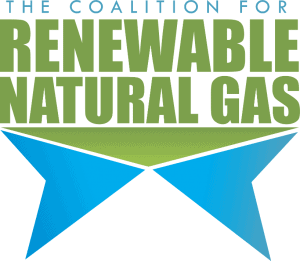

 Natural gas, as consumers use it, is altered from the natural gas that is captured from underground up to the wellhead. Natural gas processing consists of separating all of the various hydrocarbons and fluids from the pure natural gas to produce what is known as “pipeline-quality” dry natural gas or renewable natural gas (RNG). RNG is essentially indistinguishable from natural gas but derived from biological materials rather than fossil fuel deposits.
Natural gas, as consumers use it, is altered from the natural gas that is captured from underground up to the wellhead. Natural gas processing consists of separating all of the various hydrocarbons and fluids from the pure natural gas to produce what is known as “pipeline-quality” dry natural gas or renewable natural gas (RNG). RNG is essentially indistinguishable from natural gas but derived from biological materials rather than fossil fuel deposits.
RNG comes from various sources, including livestock farms, municipal solid waste landfills, water resource recovery facilities (wastewater treatment plants), waste products from food and beverage production, and organic waste management operations. RNG can be used for thermal applications, electricity generation, bio-plastic feedstock, or vehicle fuel.
SCS Engineers designs and builds systems that capture, purify, and compress natural gas for injection into pipelines or liquefy the natural gas (LNG) for transport. Liquefied natural gas (LNG) can be an economical choice when the construction of pipelines is not feasible.
SCS Engineers employs advanced technology to reduce the costs associated with the liquefaction and regasification of LNG. The use of LNG allows for the production and marketing of natural gas deposits previously economically unrecoverable.
SCS Engineers uses the following technologies:
Anaerobic digestion for biogas occurs in an anaerobic reactor, containing complex microbial communities that digest the waste and produce resultant biogas and digestate. Multiple organic materials can be combined in one digester. Co-digested materials include manure; food waste (i.e., processing, distribution, and consumer-generated materials); energy crops; crop residues; fats, oils, and greases (FOG) from restaurant grease traps, and many other sources. Co-digestion can increase biogas production from low-yielding or difficult-to-digest organic waste.
A large number of industries are taking advantage of the benefits of renewable natural gas and anaerobic digestion, including:
SCS offers turnkey delivery, which helps us get plants online to generate revenue faster. Our track record of successful project delivery is second to none.
With SCS’s deep bench and expertise, we offer an in-depth understanding of the overall project economics; we often assist developers in evaluating their project’s feasibility and ROI. We collaborate with our clients in assessing the value relative to the multimillion-dollar CAPEX and OPEX costs for AD and RNG projects.
We do not commit to specific technologies; we develop solutions uniquely suited to our client’s goals. We know how to best use various gas processing technologies to maximize the methane recovery percentage or lower a project’s carbon intensity, goals that can be at odds with one another.
EDL owns the Wood Road Renewable Natural Gas (RNG) Facility in Lansing, MI. The facility converts waste gases from landfill into approximately 870,000 mmBtu of pipeline-quality RNG each year, which displaces about 4.5 million gallons of diesel when used in transport.
The Wood Road Renewable Natural Gas (RNG) Facility is the first of its kind in Lansing, Michigan. EDL, Granger Waste Services, and Consumers Energy are working together to provide RNG created from local landfill waste.
This RNG facility extracts and converts around 19,000 tons of methane from landfill gas annually from Granger Waste Services’ Wood Street Landfill into approximately 870,00 mmBtu/year of pipeline-quality RNG. Using this RNG instead of natural gas displaces about 29,000 tCO2-e (tons of carbon dioxide equivalents) per year that would have otherwise resulted from combusting comparable fossil fuels. That’s the annual equivalent of 67,075 barrels of oil, or 3,263,193 gallons of gasoline!
From Kitchen to Landfill and Back as Renewable Natural Gas – Video Courtesy of Granger Waste Services
Construction of Wood Road Renewable Energy Plant in Michigan – Video Courtesy of EDL